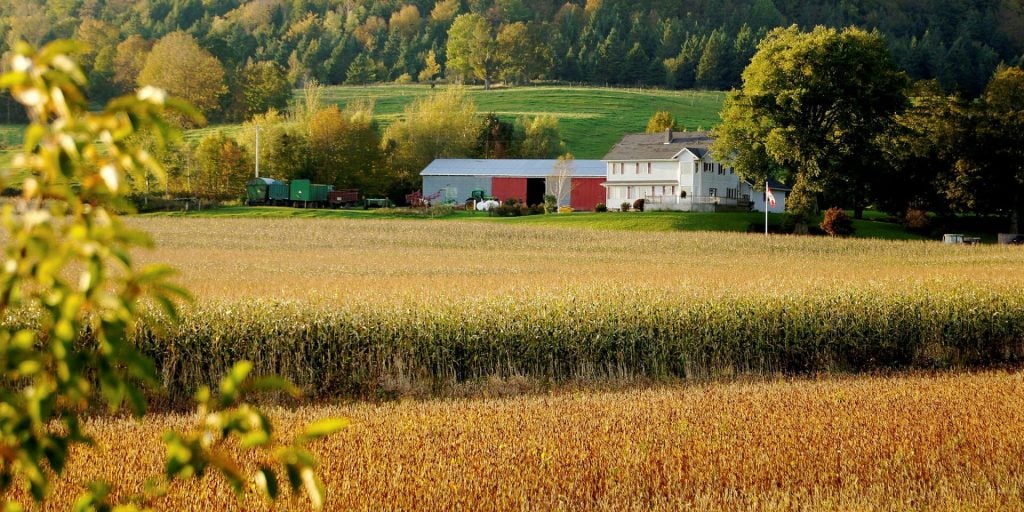Let’s Talk About an Income Support Guarantee for Farmers
By Rita Jackson, National Farmers Union District 1, Region 1 Director
Originally published in Atlantic Farm Focus, June 2025
The NFU-PEI had our annual District 1, Region 1 convention in April of 2025. As part of the convention, members debated and voted on several resolutions, which are formal policy positions that guide the NFU’s advocacy and priorities. One of the resolutions that received a lot of attention was a proposal for an Income Support Guarantee—an annual income to support future farmers. Our resolution proposes an Income Support Guarantee amount of $50,000 per year for 10 years for new farmers. Whatever you think about these numbers, it’s time we had a discussion about changing the course we are on.
We have heard it all. No Farms, No Food. Farmers Feed Cities. No Land No Farms. Bumper stickers, and clichés. Clichés because it’s all true. We all have to eat, and to grow food we need arable land – but there is very little arable land available. Here on PEI, if we continue losing arable land at the current rate, we will lose half of it by 2050. That is only twenty five years! The blink of an eye when you think of it.
Where do we want our food to be produced, here or 4,000 kilometres away from us? What is the carbon footprint of the transportation alone? Will the food be up to Canadian standards? Who will enforce our standards and regulations? The current political climate shows us that when we must import our food, we are at the whims of others. Do we want to be sovereign? A country that cannot feed its people will not be a country for very long.
Like me, our current cohort of farmers is aging. We will need to be replaced in the next 10 to 20 years. We need new farmers, but many new or future farmers are facing obstacles: the price of land if there is any available, the cost of equipment and all the inputs required for a farm to operate. How can we make this work?
First, our new set of farmers will need land. We must protect the arable land we have, and preserve it for our future farmers.
Second, if we preserve the land for farming, our future farmers must be able to access land. Let’s use a small 120-acre organic farm as an example. Currently the asking price for an 120-acre organic farm here on PEI is around $1,000,000.00. One million dollars, just for the land and a house and a few buildings, but no equipment. A mortgage of one million amortized over 25 years will be $5, 816.05 per month if interest rates stay at 5%. The mortgage payments alone will be close to $70,000 a year.
Third, a loan for equipment—let’s say $500,000.00. The future farmer has to buy fuel, seed and other inputs, and wait for the harvest. If our farmer plants fruit trees, they will have to wait at least 5 years for a fruit harvest. In the meantime, our farmer has to pay for electricity, food, clothing—maybe buy a book once in a while. How does our farmer cover all of those expenses? Will our farmer and their partner both have to work off the farm to support themselves? Many do now: why is that what we expect of our farmers? After crunching the numbers, I believe that $50,000 is not enough.
The Income Support Guarantee in our NFU-PEI resolution was partially based on the grant system that the province of Quebec is setting up, using criteria like the level of education of a farmer. We need to go further. Our future farmer is not only growing food for our citizens, but they could also be improving the soil by adding organic material, preventing run-off and fish kills, helping filter the water and clean the air, providing shelter for the wildlife, birds and insects and a scenic view for tourists who will stop by to take photos of the cows laying around in the pasture. I’ve never seen a tourist taking photos of a strip mall or a cookie cutter house.
Our farmers need to have economic dignity. Their efforts in growing food are barely recognized, never mind their contribution to the well being of our air, the critters in the wild, the soil and the water.
Settling on the right amount for an Income Support Guarantee is not easy, and I’m not sure I have the answer, but I am sure that we need to have the discussion.
